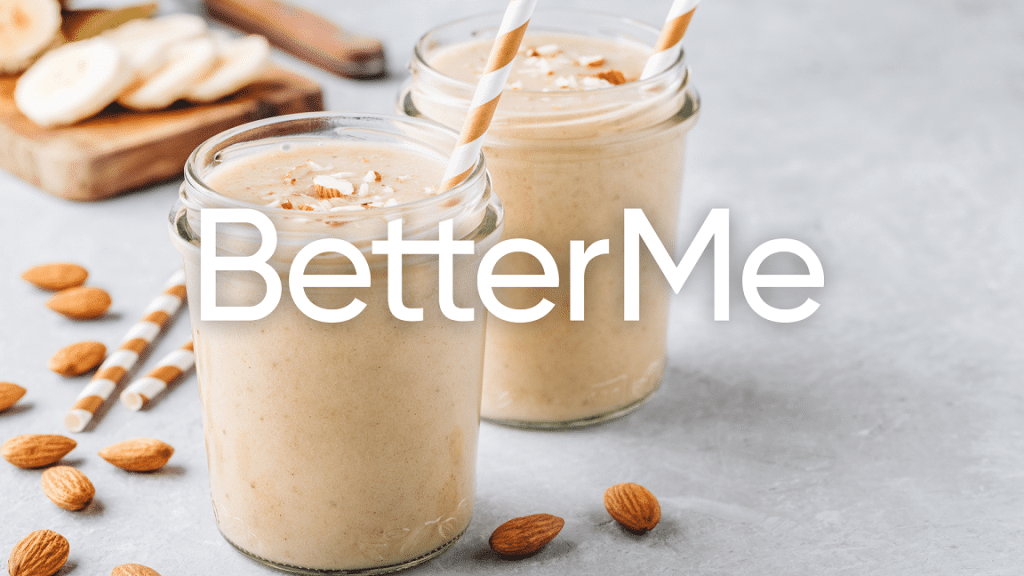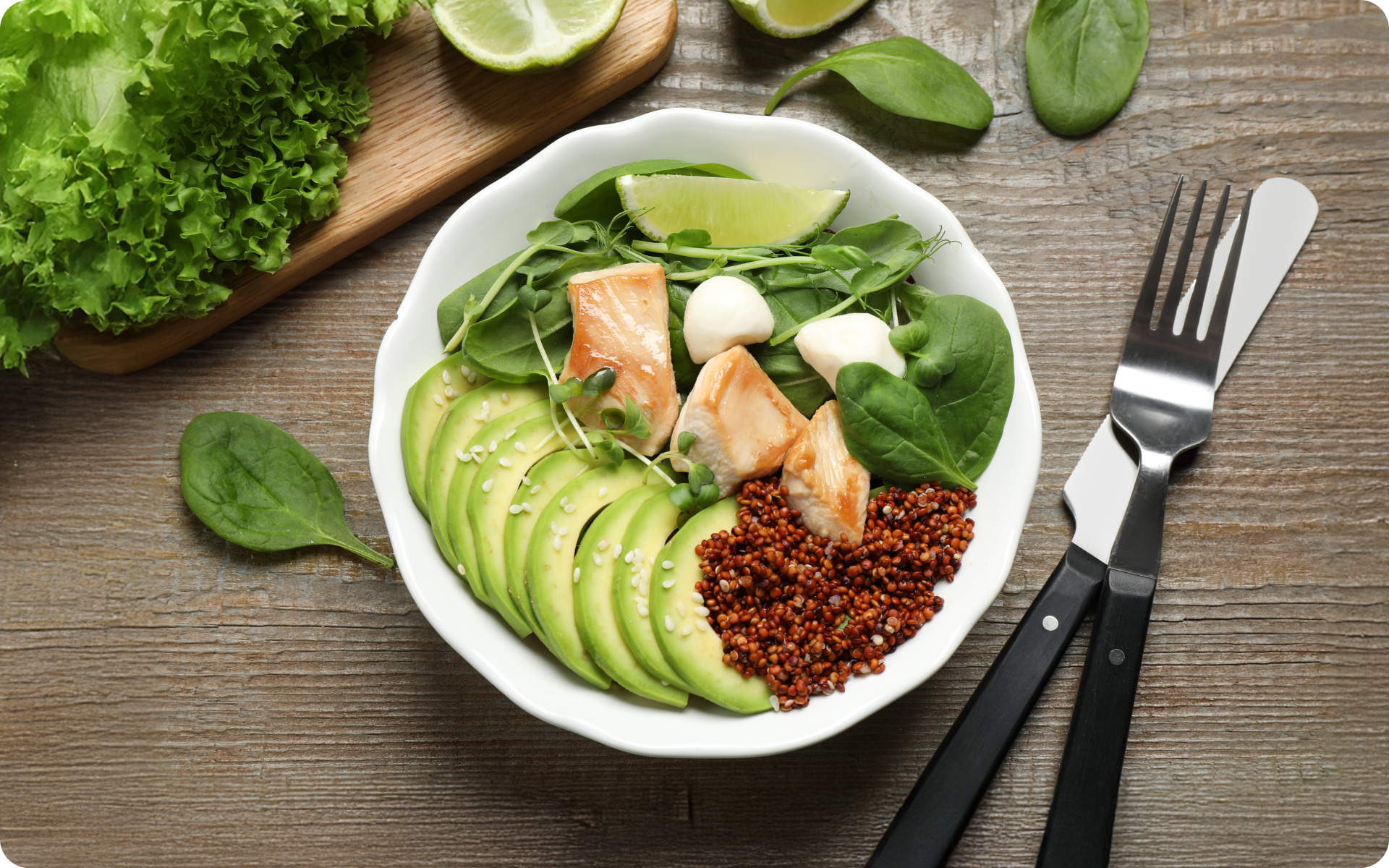Eating a balanced, nutritious diet is essential for good health, but sometimes it’s hard to fit all the nutrients you need into each busy day. This is where a meal replacement diet comes in. A meal replacement diet is a way to replace some or all of your regular meals with nutritional shakes, bars, or other meal replacement products.
There are several different types of meal replacement diets, but they all have one common goal: to provide you with the nutrients you need in a convenient form while helping you lose weight or maintain your current weight. Some meal replacement diets are designed for people who want to lose weight, while others are aimed at people who want to maintain their current weight.
In this article we’ll explain what a meal replacement diet is, how it works, and the pros v cons of using one. We’ll also look at the different types of meal replacement diets and how to choose the right one for you.
What Is A Meal Replacement Diet?
A meal replacement diet is a way to replace some or all of your regular meals with nutritional shakes, bars, or other meal replacement products.
How Does A Meal Replacement Diet Work?
Meal replacement diets work by making sure you get the nutrients you need while aiming to help you lose weight or maintain your current weight (5).
What Are The Pros And Cons Of A Meal Replacement Diet?
The pros of using a meal replacement diet include:
Weight Management
A meal replacement diet can help you lose weight or maintain your current weight (5).
Convenience
Meal replacement diets are convenient because they are easy to prepare and you can take them with you on the go.
Variety
Meal replacement diets offer a variety of different options, including shakes, bars, and other meal replacements.
Read More: 7-Day Protein Shake Diet: Can You Lose Weight With Meal Replacement?
Added Fiber
In addition to protein, many meal replacement diets also include fiber, which can help you feel full and satisfied after eating (3).
The cons of a meal replacement diet include:
Possibility Of Weight Gain
If you replace all of your meals with meal replacements, or if you eat additional foods that aren’t accounted for in your program, you may gain weight instead of losing it. This can happen when consuming more calories from the meal replacements and/or additional snacks than you need.
Cost
Meal replacement diets can be expensive, especially if you buy all of your meal replacements from local stores or online.
Risks Associated With Some Meal Replacements
Some meal replacements are not complete, such as shakes and bars, and as such won’t provide all of the nutrients you need. This can lead to deficiencies in certain vitamins and minerals (8).
Artificial Ingredients
Some meal replacements, such as shakes and bars, contain artificial ingredients that may not be healthy for you (6).
Risk Of Allergies
Some people may be allergic to the ingredients in meal replacements.
Unsustainable Diet
Meal replacement diets can be difficult to follow long-term, which may lead to weight gain once you stop using them.
How To Choose A Meal Replacement Diet
There are several different types of meal replacement diets, but they all have one common goal: to provide you with the nutrients you need while helping you lose weight or maintain your current weight.
The best way to choose a meal replacement diet is to consider your goals and needs. If you want to lose weight, choose a diet that is designed for weight loss. If you want to maintain your current weight, choose a diet that is designed for weight maintenance.
Another thing to consider when choosing a meal replacement diet is the cost. Meal replacement diets can be expensive, so make sure you choose one that fits your budget.
Finally, make sure the diet you choose includes a variety of different options, including shakes, bars, and other meal replacements. This will help ensure that you get the nutrients you need while satisfying your taste buds (4).
BetterMe app will kick you out of the mental funk, shake off your extra weight, rid you off your energy-zapping habits, and help you sculpt the body of your dreams. Intrigued? Hurry up and change your life for the better!
Are Meal Replacements A Good Way To Gain Weight?
For some people, gaining weight is a challenge. In this case using a meal replacement diet may be a good way to achieve that goal.
Meal replacement diets can be used to gain weight in two ways:
- By replacing all of your meals with meal replacements
- By adding extra calories to your regular diet such as by drinking shakes or eating bars.
If you want to gain weight, it’s important to make sure you are consuming more calories than you are burning (7). Strength training exercises can also help. This will help ensure that you are gaining muscle, not just fat.
Whole, nutrient-dense foods are always the best way to gain weight healthily. Avoid ultra processed foods, which are high in calories but low in nutrients (1).
Meal replacement diets can be a helpful tool for gaining weight, but they should not be your only source of nutrition. Make sure you are also eating a variety of healthy foods to ensure that you are getting the nutrients your body needs.
Are Meal Replacements A Good Way To Lose Weight?
Despite their growing popularity, there is no scientific evidence supporting meal replacements as a good way to lose weight. In fact, if you replace all of your meals with meal replacements, you may gain weight instead of losing it.
Meal replacements can be a helpful tool for weight loss when they are used in combination with other healthy eating habits (13). However, they should not be used as a sole source of nutrition.
Alternatives To The Meal Replacement Diet
Instead of using a meal replacement diet, try incorporating healthy, low-calorie foods into your regular diet. This is a more sustainable way to lose weight and maintain your results over the long term.
Some good examples of healthy, low-calorie foods include fruits and vegetables, lean protein, whole grains, and low-fat dairy products (2). By incorporating these foods into your regular diet, you can lose weight and maintain your results without using a meal replacement diet.
Here are other weight loss tips that may come in handy:
Move Your Body More
While diet is important when it comes to weight loss, exercise is also key (11). Move your body more each day and you will see results sooner than you think.
Exercising for 30 minutes each day is a great way to start losing weight.
Read More: Physical Activity And Nutrition: How Are They Related?
Avoid Eating Processed Foods
Processed foods are high in calories and unhealthy fats, which means they can sabotage your weight loss goals.
If you want to lose weight, avoid eating highly processed foods as much as possible. Instead, focus on eating whole, unprocessed foods that are packed with nutrients and fiber.
Drink Plenty Of Water
Water is essential for good health, and can also help you lose weight (12).
Drink plenty of water each day and you will likely see results in terms of weight loss. Water can help suppress your appetite, boost your metabolism, and keep you hydrated.
Sleep Better
Sleep is another important factor when it comes to weight loss (9). If you are not getting enough sleep, your body will be less efficient at burning calories and you will be more likely to gain weight.
Get plenty of sleep each night and you will see results in terms of weight loss. A good night’s sleep can help boost your metabolism, increase your energy levels, and reduce your stress levels (9).
Lean and toned up body isn’t just a far-fetched fantasy. Check out the BetterMe app and watch it propel your weight loss journey into high gear!
Destress
Stress triggers the release of the hormone cortisol, which can lead to weight gain (10).
If you want to lose weight, it is important to find ways to destress. Some effective methods of stress relief include exercise, yoga, meditation, and spending time with friends and family.
Be Patient And Consistent
Weight loss is a slow process, and it is important to be patient and consistent if you want to see results.
To improve your consistency, set realistic goals and track your progress over time. This will help you stay motivated and on track with your weight loss goals.
The Bottom Line
A meal replacement diet is a way to replace some or all of your regular meals with nutritional shakes, bars, or other meal replacements. They are convenient, easy to prepare, and offer a variety of different options. The best way to choose a meal replacement diet is to consider your goals and needs, the cost, and the variety of options available.
DISCLAIMER:
This article is intended for general informational purposes only and does not serve to address individual circumstances. It is not a substitute for professional advice or help and should not be relied on for making any kind of decision-making. Any action taken as a direct or indirect result of the information in this article is entirely at your own risk and is your sole responsibility.
BetterMe, its content staff, and its medical advisors accept no responsibility for inaccuracies, errors, misstatements, inconsistencies, or omissions and specifically disclaim any liability, loss or risk, personal, professional or otherwise, which may be incurred as a consequence, directly or indirectly, of the use and/or application of any content.
You should always seek the advice of your physician or other qualified health provider with any questions you may have regarding a medical condition or your specific situation. Never disregard professional medical advice or delay seeking it because of BetterMe content. If you suspect or think you may have a medical emergency, call your doctor.
SOURCES:
- Consumption of ultra-processed foods and health outcomes: a systematic review of epidemiological studies (2020, nutritionj.biomedcentral.com)
- Defining the Optimal Dietary Approach for Safe, Effective and Sustainable Weight Loss in Overweight and Obese Adults (2018, mdpi.com)
- Dietary fat, fibre, satiation, and satiety—a systematic review of acute studies | European Journal of Clinical Nutrition (2018, nature.com)
- Dietary Variety Increases the Probability of Nutrient Adequacy among Adults | The Journal of Nutrition | Oxford Academic (2004, academic.oup.com)
- Efficacy of a meal replacement diet plan compared to a food-based diet plan after a period of weight loss and weight maintenance: a randomized controlled trial (2010, nutritionj.biomedcentral.com)
- Food additives (2018, who.int)
- Physiological adaptations to weight loss and factors favouring weight regain | International Journal of Obesity (2015, nature.com)
- Prevalence of micronutrient deficiency in popular diet plans | Journal of the International Society of Sports Nutrition | Full Text (2010, biomedcentral.com)
- Sleep and obesity (2013, ncbi.nlm.nih.gov)
- Stress and Obesity: Are There More Susceptible Individuals? 2018, link.springer.com)
- The Role of Exercise and Physical Activity in Weight Loss (2014, ncbi.nlm.nih.gov)
- Water, hydration, and health (2010, academic.oup.com)
- Weight management using a meal replacement strategy: meta and pooling analysis from six studies (2003, nature.com)














